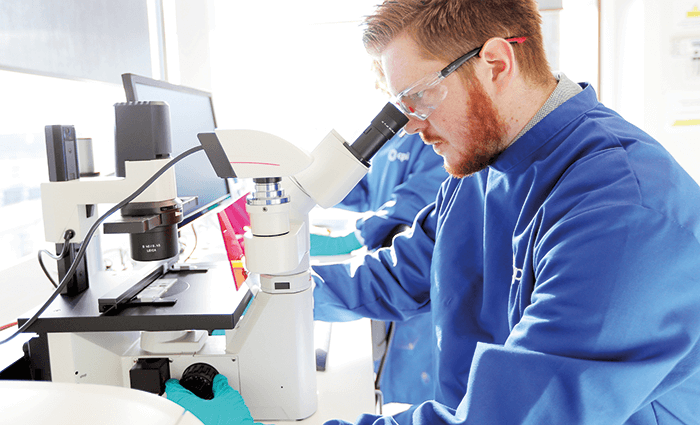
Adeno-associated virus (AAV) is a small, non-enveloped virus with a genome of single-stranded DNA, and for many years nobody paid it much attention because it’s not known to cause disease. But in recent years, researchers have realized that this lack of pathogenicity – in addition to other characteristics – makes AAV vectors perfect for use as a delivery vehicle in gene therapy. However, manufacturing AAV vectors is no easy task, which is likely to make final therapies very expensive. Hurdles include possible contamination with adenovirus or baculovirus, long lead times for cell line production and virus seed generation, low productivity, and high costs. To tackle the challenges, the UK’s Centre for Process Innovation (CPI) has teamed up with Cobra Biologics, a contract development and manufacturing organization, to develop an industrial manufacturing platform. The project is funded through Innovate UK via their competition for the development of regenerative medicines and cell therapies – and is one of five projects in the area. Juliana Haggerty, public/private program manager at CPI’s National Biologics Manufacturing Centre, sheds more light on AAV vectors and the collaboration.




